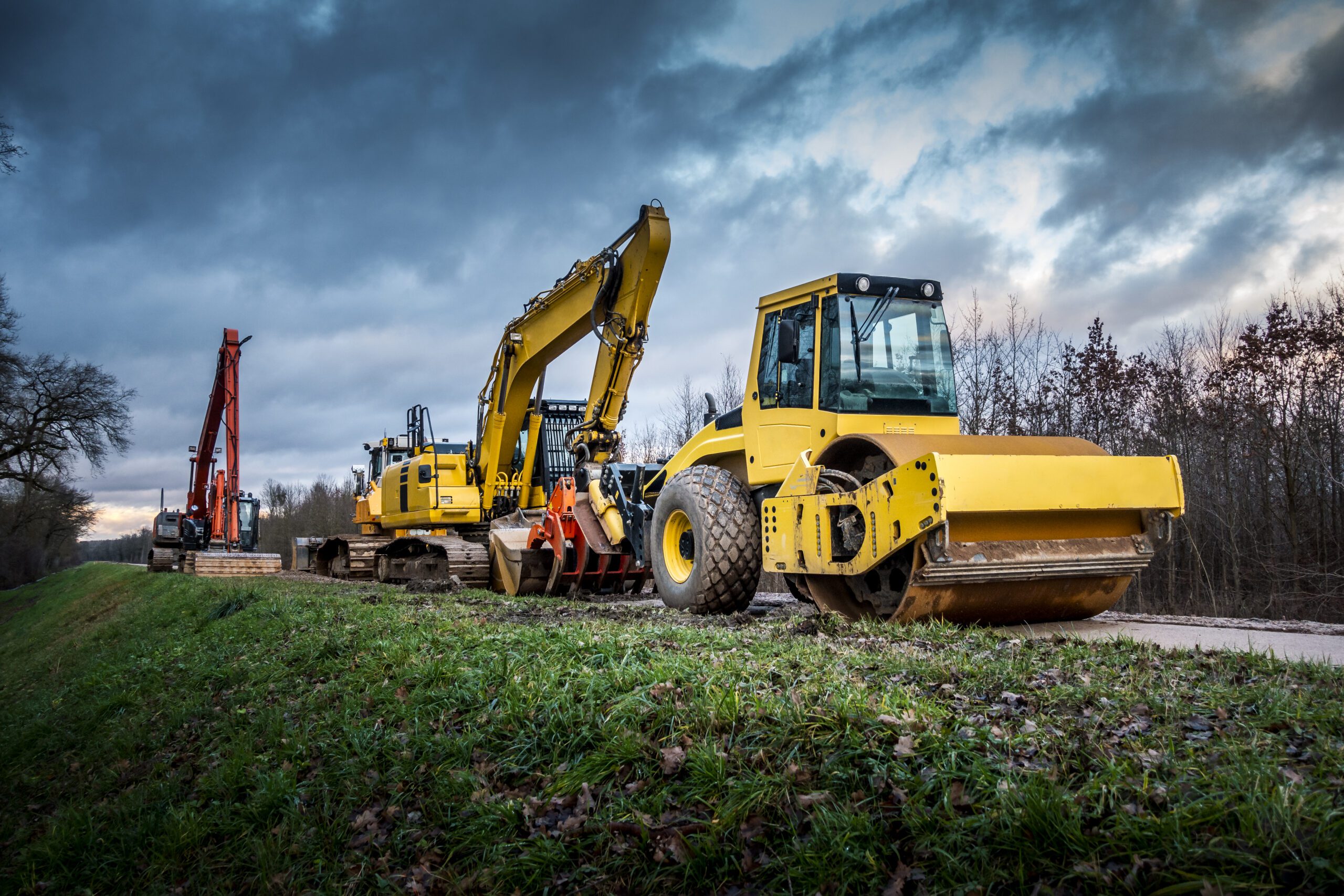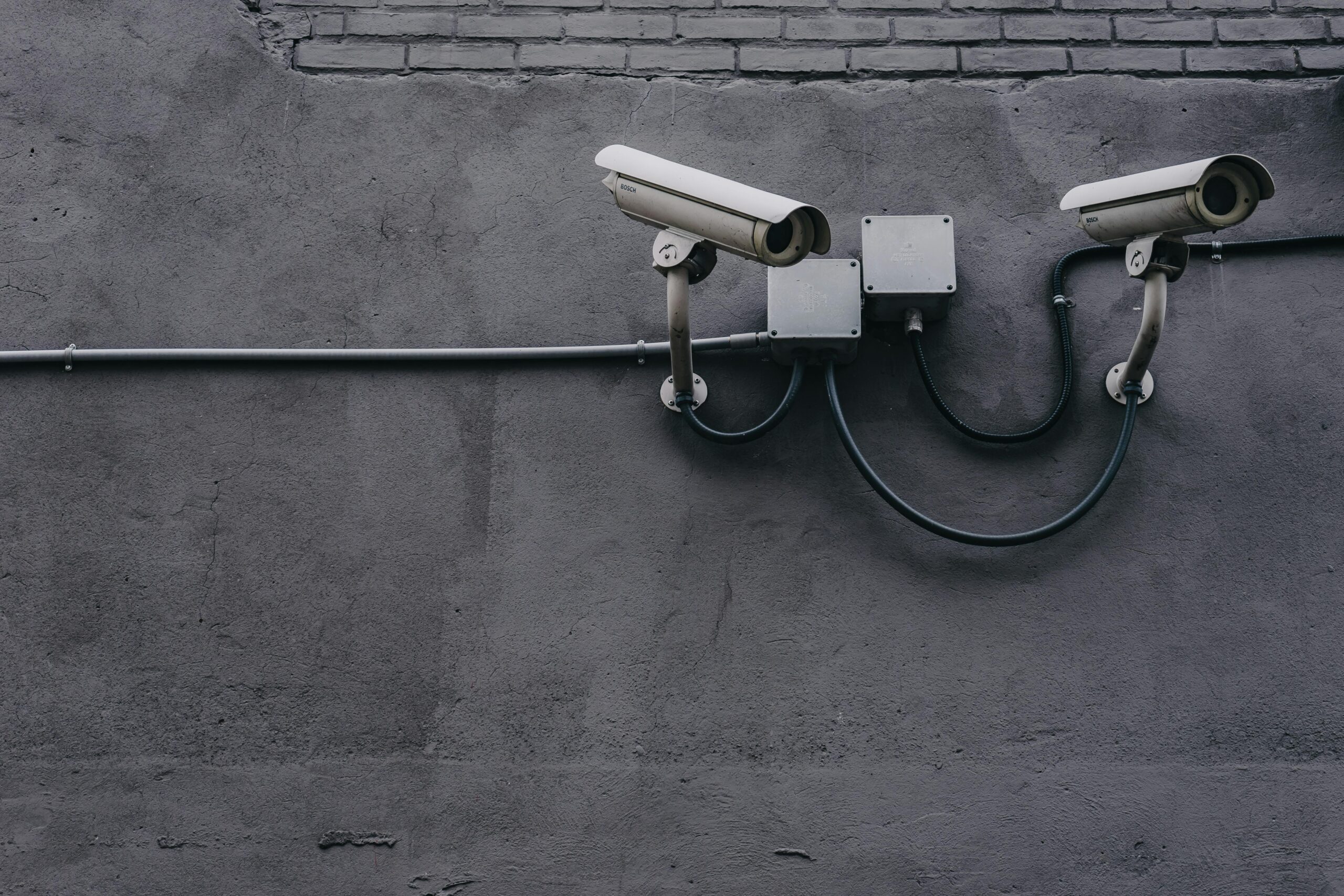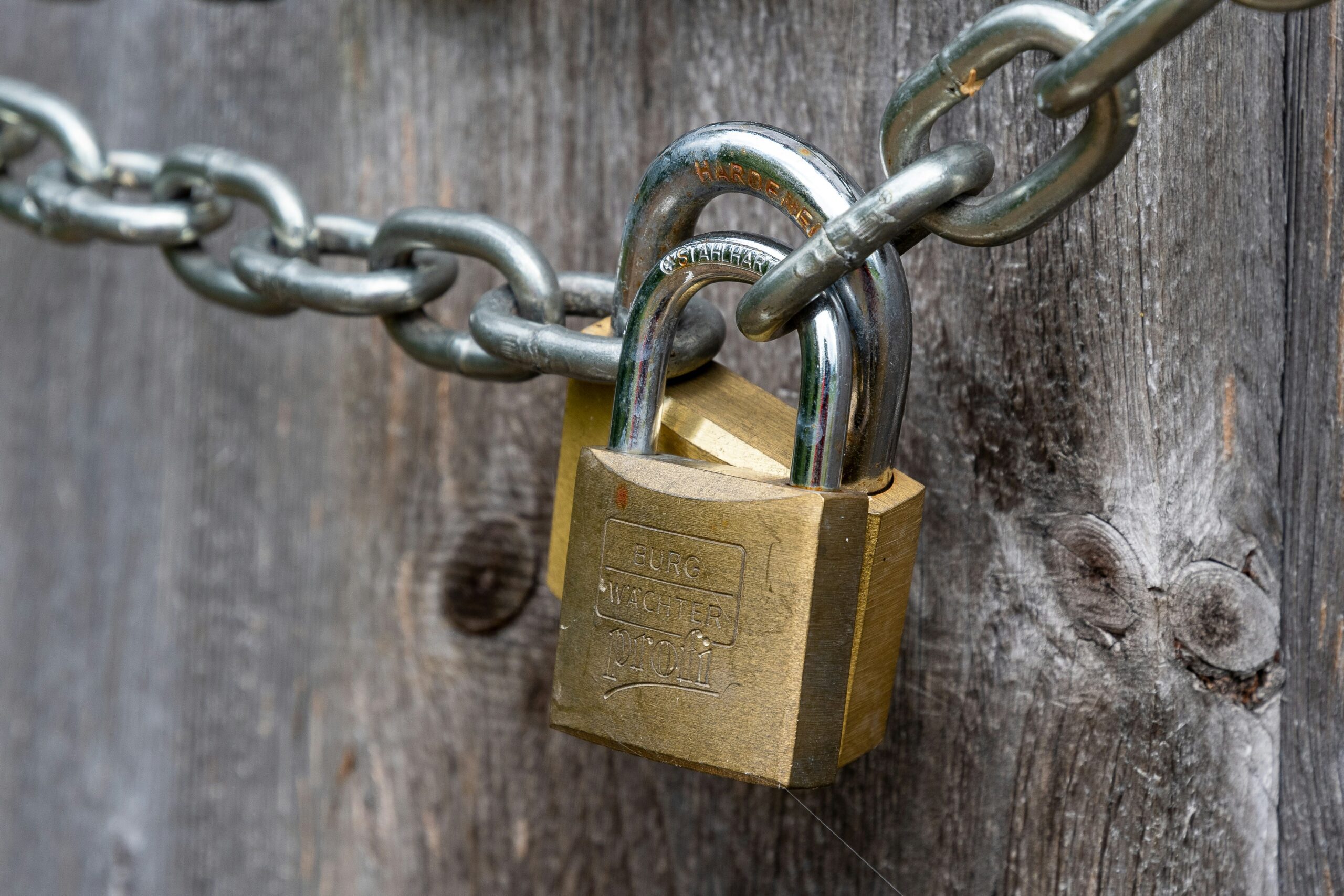“In 2023, there were over 2,000 reports of equipment theft in the rental industry”
ARA
In the rental industry, equipment theft and fraud are significant issues, involving not just the physical theft of items but also deceptive practices like online scams and identity theft to acquire and then steal equipment unlawfully.
In this blog, we’ll define equipment theft and fraud, then discuss ways to prevent your business from becoming a victim in 2024.
Buckle up, ‘cause we’ve got lots to share!
What is The Difference Between Equipment Theft and Fraud in the Rental Industry?
Both issues ultimately lead to theft of physical equipment or money, but what is the difference between theft and fraud in the rental industry?
- Equipment theft in the rental industry refers to stealing physical items from a business. This can be done by renting and not returning an item, taking unattended equipment without permission, or any other method of unlawfully acquiring equipment with the intent not to return it.
- Fraud involves deceitful tactics to acquire equipment or money, such as using someone else’s identity or fake information online. It’s about tricking the business into handing over items or funds under false pretenses, which can also lead to losing equipment or financial assets.
While these tactics often go hand-in-hand, it is important to understand the difference between the two, so that you can take precautions to protect your business. And you may be wondering, “Do I need to protect my rental business from theft?” Unfortunately, the answer is yes.
The National Equipment Register (NER) highlighted the seriousness of the problem, reporting over 2,000 cases of heavy equipment theft in a single year. This type of crime is particularly challenging because once equipment is stolen, recovering it is often difficult.

Types of Equipment Theft
Both issues ultimately lead to theft of physical equipment or money, but what is the difference between theft and fraud in the rental industry?
- Smash-and-Grab: This occurs when thieves physically break into a location to quickly steal equipment. It’s opportunistic, targeting items that are easily accessible, often because they are left unattended or in poorly secured areas.
- Identity Fraud: This involves the use of stolen or fake identities to rent equipment, which the criminal then never returns. It’s a deceptive practice that not only leads to the loss of equipment but can also involve financial theft if they use their identity to access credit or funds.
Equipment, especially heavy items like mowers and utility vehicles, is at high risk because these are frequently stored outside, which makes them easy targets for theft. But any item that is left unattended can be an easy target for this type of crime.
Rental businesses are particularly vulnerable to these types of theft due to the nature of their operations, highlighting the importance of enhanced security and verification processes.

Common Scams Targeting Rental Businesses
Identity Theft
This is when thieves use a fake identity to rent equipment, then disappear and sell the stolen goods online, making recovery difficult. If you search online, you’ll find tons of posts from disgruntled rental owners who have experienced this scam – and they never recovered their equipment.
Here’s how it works:
A scammer might use a stolen identity to rent an expensive piece of furniture, like a high-end bench or seating arrangement. They provide all the “necessary” documents, which are actually fake, and walk out with the item.
The next day, the vehicle is listed for sale on an online marketplace, like Craigslist or Facebook Marketplace. By the time the rental company realizes the deception, the scammer and the item are long gone, leaving the business with a significant loss and little hope of recovery.
Facebook Scams
If you advertise your rental business on Facebook, it is extremely important to be able to spot shady players on this site. There are TONS of scams out there, and they are not shy about targeting any user that will let them slide into their DM’s.
While there are specific scams out there that are well-known, there are always new scams in development. So, here are some red flags to look out for when talking to potential customers online:
- They are overly pushy. Scammers often use pressure tactics, hoping you won’t have time to spot the red flags or verify their identity.
- Their account doesn’t look legitimate. A poorly detailed or newly created account can indicate a scammer trying to remain anonymous and avoid detection.
- They request to communicate on a third-party app. Scammers prefer apps that make them more anonymous, making it harder for victims and authorities to track them down.
- They ask you to send them money. In the context of rental businesses, a scammer may attempt to overpay you, and request that you send them the difference back. NEVER do this! These funds are fraudulent, and you’ll be left holding the bag when the bank takes the fraudulent funds back.
- They ask for personal information. Scammers will fish for personal information or send you phishing links in an attempt to gather personal information. They use this information to steal from you or for other fraudulent activity.
If an account engages in any of the above behaviors, beware. It could be a scammer out to get your information.
Additionally, here are some specific scams we know of!
The “Zelle” Scam
The Zelle Facebook Marketplace Scam involves scammers contacting sellers about expensive items, offering to pay via Zelle. They send a fake payment notification or claim a higher subscription version of Zelle is needed (Hint: This doesn’t exist), tricking victims into sending money.
How it works:
A scammer expresses interest in an expensive item or rental listed on Marketplace, sends a fake Zelle payment confirmation, and asks the seller to refund the “extra” payment or pay for a premium Zelle service, leading to financial loss for the business.
IOU’s
In the “IOU” scam, a scammer agrees to pay for an item after receiving it but then disappears with the item, never making the payment.
How it works:
A scammer requests to take a utility vehicle with the promise to pay the next day. Once the item is in their possession, they end all communication and never return or pay, leaving the seller at a loss for both the rental and the item.
Overpayment
The overpayment scam involves scammers overpaying for orders using fraudulent methods, then requesting the excess be returned. This scam is particularly deceptive because the initial funds appear in your account, seeming legitimate, but are actually fraudulent. When you refund the excess money, you use real money.
Eventually, when the bank identifies the fraud, they withdraw the original amount, leaving you at a loss with the scammer taking the legitimate refund.
How this works with credit cards
A scammer pays for equipment rental with a stolen credit card, overpays, and asks for the difference to be refunded to a different card. Once the original transaction is flagged as fraudulent, the business loses the refunded money.
How this works with checks
A scammer sends a fake check for more than the rental cost, requests the surplus be returned, and disappears once the check bounces, leaving the business out the refunded amount.
Phishing
“Phishing” is a type of fraud that targets businesses by sending emails with attachments and links that contain malware or trick users into revealing personal information like passwords or credit card information. The malware attached to these emails allows scammers to gain access to passwords and/or sensitive financial information that can be used for fraudulent activity.
Here’s how it works
An employee at a rental equipment company receives an email claiming to be from their IT department, asking them to click a link to update their password due to a security breach.
Believing the email to be legitimate, the employee clicks the link, which leads to a fake login page. They enter their credentials, unknowingly giving a scammer access to the company’s inventory system.
This breach could lead to unauthorized access to the business’s and customers’ information and financial data.

Protecting Your Rental Business from Equipment Theft and Fraud
Preventing Equipment Theft
Although completely preventing equipment theft and fraud is not possible, rental businesses can implement strategies to reduce their risk and make their assets less attractive targets for criminals.
Verify a customer’s identity before handing over equipment.
Make sure that the person renting the equipment is who they say they are. You can do this by asking for identification like a driver’s license or state ID. Nowadays, it’s easier than ever to check the validity of a license or ID with technology! Always have your customers sign a rental agreement, which will legally protect your business.
Make deposits part of your rental process.
Require a deposit for rentals to ensure a financial commitment from the customer. Thieves are less likely to pay money upfront for an item, and these kinds of requirements will deter them from targeting your business.
Invest in visible security equipment, like cameras and alarms.
Investing in and visibly promoting your security systems, such as cameras and alarms, can deter potential thieves. Thieves typically aim for the easiest targets, and a business that visibly secures its equipment is less likely to be targeted than one without visible security measures.
Don’t leave equipment unattended.
This may seem obvious, but many thefts in the rental industry are items that were left unattended. If at all possible, put your valuable items inside at night. If you must leave equipment outside overnight, never leave the keys in a vehicle and lock them away in a safe spot inside.
Attach GPS trackers onto your valuable items.
If a piece of inventory is lost or stolen, a GPS tracker can help you track down the item and have it retrieved by law enforcement.
Insure your equipment.
Invest in insurance that covers equipment theft, so that your business is protected if an item cannot be recovered.

Preventing Fraud
Theft is scary, but most people are a lot more afraid of getting scammed online. For good reason! Once you’ve fallen for a scam or become a victim of fraud, it can be difficult to get your money back.
Luckily, there are a few great ways to spot scammers or discourage them from continuing to pursue your business:
Never agree to send an unverified customer money.
Generally, any customer that asks YOU for money that isn’t a refund for a purchase can already be written off as a scammer. Do not entertain any conversations in which a customer asks you to pay or send them back money for an overpayment.
Change your passwords frequently, and never use the same password twice.
And never share sensitive passwords with anybody!
Instill good online practices in your employees, like never clicking on links or attachments from outside sources.
Often, links from outside sources can contain malware that retrieves personal information about the user who clicks on it. Scammers may use this information to gain access to your business accounts, putting your business at risk for financial losses.

Already Experienced Theft or Fraud? Here’s What to Do
Alright, we’ve shared some great preventative tips, but what do you do if you’ve already experienced theft or fraud?
What If Your Rental Equipment is Stolen?
- Report the incident to the police. This is, by far, the most important step if you want to have any shot at recovering your equipment. The sooner you do this, the better chance police have of finding the item before it is sold off. Additionally, many insurance companies will want to see that you filed a police report before paying out for your equipment if it cannot be recovered.
- Gather proof of ownership. If your equipment is recovered, you need to be able to prove beyond a shadow of a doubt that it is yours. Find any paperwork confirming that you purchased the unit, including receipts and serial numbers.
- Check Pawn Shops, Facebook Marketplace, Craigslist, and Ebay. Many thieves will turn around and sell the stolen item online. See if your item is listed online and if you find it, notify authorities immediately.
- If the item cannot be recovered, make an insurance claim.
What If Your Rental Business Gets Scammed?
- Notify your bank IMMEDIATELY. If sensitive information, like banking information, has been compromised and you notice unverified activities on your financial accounts, immediately notify your bank. The bank will freeze the credit card or account, and minimize any further damage.
- Report the incident to the police. After you have frozen the account, report the incident to the police.

Resources & Tools
ID Verification Tools
GPS Tracking Software for Equipment
Insurers for Rental Equipment
Training Resources for Online Safety
Ultimately, Prevention is Key!
Although you can take action once theft has happened, it is better to take a proactive approach to preventing theft and fraud. Always remember to keep your inventory under lock-and-key, and utilize smart online practices to prevent your business from being victimized by scammers.
By taking these preventative measures, you’ll be less likely to experience theft or falling victim to a scam.
Other blogs you may find helpful:
Hiring Top Talent for your Rental Business
Optimizing Warehouse Operations for Maximum Efficiency
The Importance of Equipment and Party Rental Contracts in 2023
Frequently Asked Questions
Although completely preventing equipment theft and fraud is not possible, rental businesses can implement strategies to reduce their risk and make their assets less attractive targets for criminals.
- Verify a customer’s identity before handing over equipment. Make sure that the person renting the equipment is who they say they are. You can do this by asking for identification like a driver’s license or state ID. Nowadays, it’s easier than ever to check the validity of a license or ID with technology!
- Make deposits part of your rental process. Require a deposit for rentals to ensure a financial commitment from the customer. Thieves are less likely to pay money upfront for an item, and these kinds of requirements will deter them from targeting your business.
- Invest in visible security equipment, like cameras and alarms. Investing in and visibly promoting your security systems, such as cameras and alarms, can deter potential thieves. Thieves typically aim for the easiest targets, and a business that visibly secures its equipment is less likely to be targeted than one without visible security measures.
- Don’t leave equipment unattended. This may seem obvious, but many thefts in the rental industry are items that were left unattended. If at all possible, put your valuable items inside at night. If you must leave equipment outside overnight, never leave the keys in a vehicle and lock them away in a safe spot.
- Attach GPS trackers onto your valuable items. If a piece of inventory is lost or stolen, a GPS tracker can help you track down the item and have it retrieved by law enforcement.
- Insure your equipment. Invest in insurance that covers equipment theft, so that your business is protected if an item cannot be recovered.
When equipment is stolen from a business, time is of the essence. Immediately report the incident to the police and your insurance. If you report the theft as soon as possible, the likelihood of recovering the equipment is much higher.
Many thieves will turn around and sell the stolen item online. See if your item is listed online and if you find it, notify authorities immediately.
If your equipment is recovered, you need to be able to prove beyond a shadow of a doubt that it is yours. Find any paperwork confirming that you purchased the unit, including receipts and serial numbers.
Yes! The first thing you should do if anything was stolen from your business is file a police report. Do this as soon as possible, as thieves will often turn around and sell stolen goods. Once the item is sold, it becomes much more difficult to track down.
Thieves aren’t usually out to keep items they’ve stolen – they steal them so that they can sell them. Thieves will often list stolen equipment on sites like Facebook Marketplace, Craigslist, and eBay.

